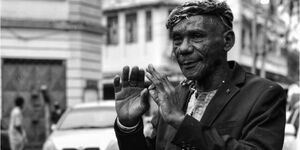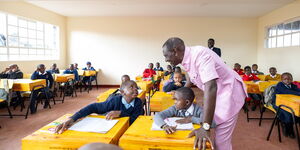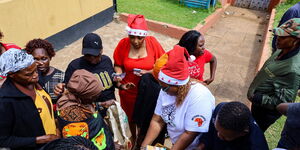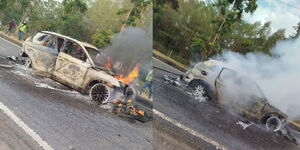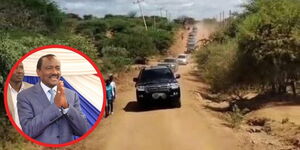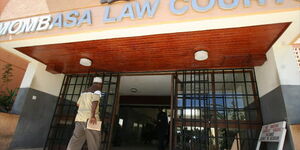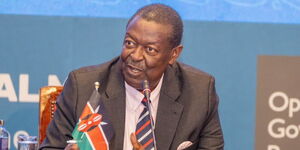Kenya is among 12 African nations set to benefit from the United States' decision to issue an additional Ksh12 billion ($93 million) in funding to combat child malnutrition across the continent.
According to Thomas 'Tommy' Pigott, Principal Deputy Spokesperson in Washington, DC, the lifesaving initiative will provide Ready-to-Use Therapeutic Food (RUTF) to nearly 1 million children suffering from severe acute malnutrition.
The spokesperson emphasised the urgency of the intervention, noting that the funding will draw down the entire prepositioned stock of RUTF and support continued production to meet ongoing needs.
“This critical funding will help save lives in 13 countries, drawing down the entire prepositioned stock of RUTF and supporting continued production to meet ongoing needs,” he said.
Other countries that will benefit include Haiti, Mali, Niger, Ethiopia, Sudan, South Sudan, Nigeria, Madagascar, the Central African Republic, the Democratic Republic of Congo, Djibouti, and Chad.
RUTF is a high-calorie, nutrient-dense paste that requires no refrigeration or preparation, making it ideal for use in remote and conflict-affected areas.
It has been hailed by global health experts as one of the most effective tools in treating severe acute malnutrition, especially among children under the age of five.
In Kenya, counties affected by drought and food insecurity, such as Turkana, Marsabit, Wajir, and Garissa, are among the areas where most children suffer from malnutrition.
The funds are expected to boost feeding efforts and improve the overall health of children vulnerable to the dangers of malnutrition.
The US government’s decision to source the RUTF from American producers also mirrors a strategy supporting domestic manufacturing while addressing global health challenges, so while helping Africa, the US will also be benefiting.
According to a recent report by the National Disaster Management Authority (NDMA), an estimated 2.8 million people in Kenya are at risk of facing acute food insecurity between April and June 2026.
NDMA stated that people in Arid and Semi-Arid Lands (ASAL) counties, particularly Turkana, Mandera, Garissa, Wajir, and Marsabit, as well as other marginal agricultural zones such as Kilifi, Kwale, Meru North, and Makueni, require urgent humanitarian assistance due to the impact of the 2024 short rain season.

